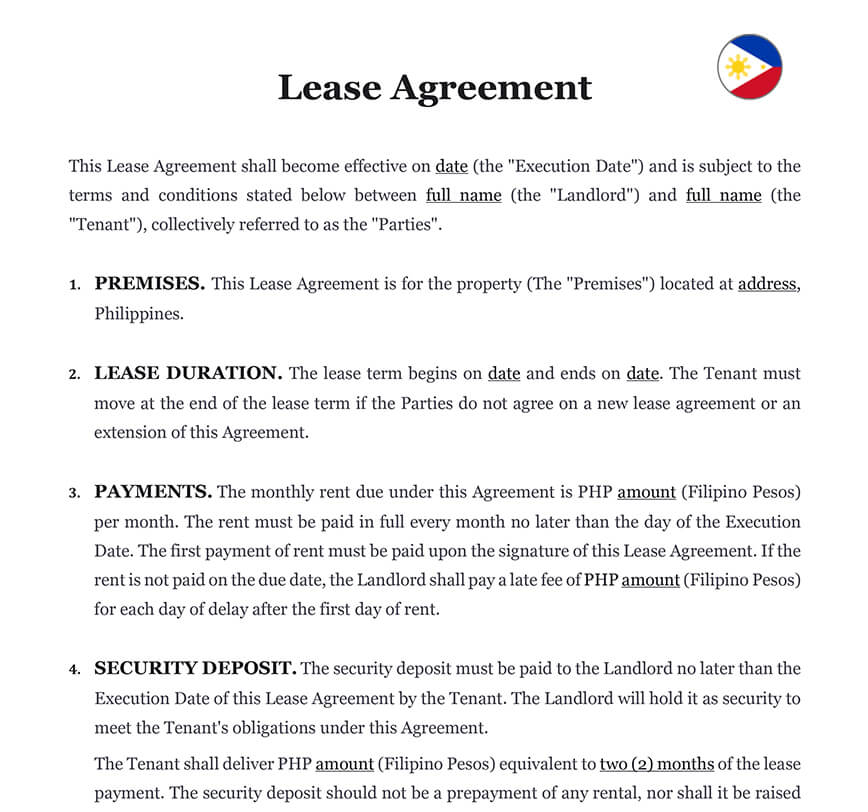
This Lease Agreement is customizable for any type of residential rental unit including houses, villas, apartments, condos or townhouses in the Philippines.

Word Document (.docx)

Ready to use legal template
Drafted by experienced lawyers
Ready to use legal template
Drafted by lawyers
The Lease Contract is the most essential legal form in real estate since it legally binds two or more parties, commonly referred to as the landlord and tenant. The rental agreement in the lease contract outlines the tenant’s right to reside and the landlord’s right to keep ownership. Both parties are protected under the contract. For example, if a renter wishes to leave, he or she must present the landlord with a notice of cancellation one month in advance to allow enough time to locate new tenants. If you want to rent a property that is not for living purpose, you may use our Commercial Lease Agreement form for a business renter or the land leasing agreement. Download this lease agreement in English to prevent owners from damage of property and ensure payment.
A residential lease agreement is a legally binding contract between a landlord and his tenant that specifies all of the requirements for renting a house or apartment as a residence. This is sometimes referred to as a landlord-tenant lease or an apartment leasing agreement.
The residential lease agreement protects both the landlord and the tenant in the case of a conflict. Residential rental agreements are typically governed by state rules. As a result, some of the appropriate and actionable wording used in these publications varies by state. If you are a landlord or a tenant, you should seek legal advice on residential lease arrangements.
A Residential Lease Agreement is a contract used by landlords to rent out property with the expectation that someone will live there.
The parties are frequently the property owner and the renter. The lease term will state how long the lease is for, when the lease begins and when it expires, the rental payments, how much rent is required, how frequently (weekly, monthly, yearly), and when it is due.
The landlord has the legal authority to cancel the lease and evict the tenant if the tenant fails to comply with the terms of his residential lease agreement. If this happens, the tenant may be forced to pay the remaining months of the lease as well as a penalty for breach of contract. If the lease ends under normal circumstances, the tenant must notify the landlord of his decision to quit in advance. If he does not, the monthly payments may be automatically renewed on a month-to-month basis, as the landlord cannot simply lease the property to a new tenant before the current tenant vacates.